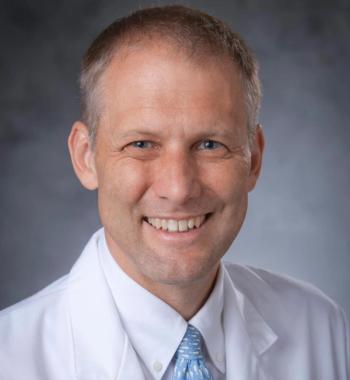
Chemotherapy drug shortages put young patients at risk; restrictions and challenges cause concerns of a rise in teen births; at least 28 companies failed to prove sufficient product testing for cough syrups.

Chemotherapy drug shortages put young patients at risk; restrictions and challenges cause concerns of a rise in teen births; at least 28 companies failed to prove sufficient product testing for cough syrups.

The CDC recommends pregnant women receive RSV vaccinations; 6 states expand their Medicaid programs to offer dental coverage; a new bill aims to address issues in the US organ transplant system

Coverage of our peer-reviewed research and news reporting in the health care and mainstream press.

Drugmakers turn to artificial intelligence (AI); new reports of vaccine appointment cancellations or insurance issues; Biden plans to clear Americans’ credit scores of medical debt.

The Biden administration will once again provide free COVID-19 tests for Americans; vaccine skepticism exists on both sides of the presidential race, concerning health officials; the FDA denied an application for the first nasal spray to treat allergic reactions, including anaphylaxis.
![[COA seal]: credit: Community Oncology Alliance](https://cdn.sanity.io/images/0vv8moc6/ajmc/a53df4e70840b0125b6abde392aedb8661fd2cc1-750x750.webp?w=350&fit=crop&auto=format)
The endorsements follow the group's lawsuit earlier this year to overturn CMS' interpretation of the Stark Law.

Most people don’t know they have hypertension, and a new recommendation advises that pregnant women should be screened for blood pressure disorders at every appointment; patients in primary care face long wait times, which may be due to physician incentives under value-based payments; a lawsuit in New Jersey targets the residency requirement to allow aid in dying for those out of state.

Small cell lung cancer (SCLC) needs to be treated quickly once diagnosed, said Konstantinos Leventakos, MD, PhD, assistant professor of oncology and medicine, Mayo Clinic, Rochester, Minnesota.

Various health programs may shut down at the end of September without congressional action; maternal health experts push for midwife workforce expansion amidst high maternal mortality rates in the United States; studies find that heightened screen time in teens and tweens before bed can result in a lack of sleep.

Artificial intelligence (AI) tools offer potential solutions to the growing demand in mental health; patients face weight loss drug shortages and insurance complications; updated mask guidelines cause worry among health care workers.

Senate and House Democrats again attempt to expand fertility treatments for veterans and active-duty personnel; CDC expects high hospitalization numbers due to “tripledemic” of COVID-19, respiratory syncytial virus, and the flu; a study found that MDMA, also known as ecstasy, can reduce posttraumatic stress disorder (PTSD) symptoms.

Coverage of our peer-reviewed research and news reporting in the health care and mainstream press.

Millions are invested in researchers for the Cancer Moonshot initiative; some providers are charging patients for communicating online; health insurance coverage increased for half of states.

Legal actions aim to ensure abortions can be provided in emergencies; cold medication ingredient phenylephrine found to be ineffective; American nursing homes are scoring low on care quality.

FDA approves updated COVID-19 booster vaccines; low donor turnout and climate disasters result in a national blood shortage; minority patients discouraged by lack of doctor diversity.

While some types of lung cancer have targeted therapies, there remains a need for identification of biomarkers to predict treatment response in small cell lung cancer (SCLC).

While patients with other diseases have benefitted from the use of biomarkers, the lack of a biomarker in small cell lung cancer remains a disappointment, said Tom Stinchcombe, MD, medical oncologist, Duke Cancer Institute.

Navigating mask mandates and vaccine recommendations; Biden administration wants employers to have naloxone on hand; NIH nominee to receive a confirmation hearing.

Workers and employees are expected to see a growth of 6.5% or higher in health plan costs in 2024; a federal report accuses New Jersey facilities of failing to protect veterans during COVID-19; decreasing numbers of primary care physicians (PCPs) are causing alarming reductions in access.

Coverage of our peer-reviewed research and news reporting in the health care and mainstream press.

An uptick in laxative use causes shortage; ketamine can help suicidal thoughts but can be hard to access; new data suggest that abortions increased in most states in 2023.

The CDC reports an increase in respiratory syncytial virus (RSV) cases among young children and babies; the deadline looms for reauthorizing the United States’ global AIDS program as it has become a topic within the abortion debate; an eye-tracking device may help to diagnose autism spectrum disorder earlier.

Rising temperatures demand action against heat-related illnesses; school superintendents face complex decisions as COVID-19 cases rise; national staffing standards for nursing homes present challenges.

CMS announces assistance for Hurricane Idalia emergency; deaths from drug overdoses due to counterfeit drugs reach historic high; customers are paying thousands of dollars out-of-pocket for off-label weight loss drugs.

The demand for mental health staff in schools outweighs the supply; the FDA sends letters to 3 formula manufacturers for federal violations; Narcan is coming to stores around the country.

Artificial intelligence (AI) tool NarxCare influences and limits painkiller prescriptions to help fight the US opioid epidemic; legislators in states with strict abortion bans are directing residents to pregnancy resource centers; air pollution is reportedly more dangerous to the average person’s health than smoking or alcohol.

Telemedicine abortions in Iowa have increased in recent months; 2 new laws restrict access to gender-affirming health care and school sports in Missouri; the end of COVID-19 safety nets means many children have lost Medicaid coverage.

COVID-19 hospital visits by adolescents nearly doubled; government to release list of drugs Medicare will be able to negotiate prices for; Rite Aid gears up for bankruptcy while facing lawsuits over alleged opioid involvement.

CDC outlines new procedures for sepsis response; mask mandates resurface during COVID-19 increase; a recent study shows that technology can help support public health programs.

Coverage of our peer-reviewed research and news reporting in the health care and mainstream press.

259 Prospect Plains Rd, Bldg H
Cranbury, NJ 08512
© 2025 MJH Life Sciences®
All rights reserved.
